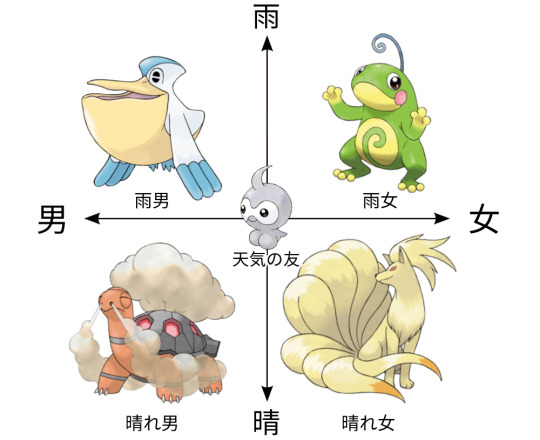#japanese vocabulary
Text
please reblog for a bigger size
Important update (5/10): this poll is not limited to langblrs! I realized I wrote that in the question but really I mean anyone and everyone who speaks / is learning japanese can participate!!
#japanese#learning japanese#japanese vocabulary#japan#hiragana#kanji#katakana#learn japanese#polls#tumblr polls#language blog#langblog#asian languages#language stuff#langblr
50 notes
·
View notes
Text
部屋探し|Apartment Hunting

Let me share with you my current struggles on finding a place to stay in Japan with this long vocabulary list!
住宅(じゅうたく)housing, residential building
住宅街(じゅうたくがい)residential area
最寄り駅(もよりえき)nearest train station
共同住宅(きょうどうじゅうたく)residential complex, apartment house
不動産屋(ふどうさんや)real estate agent
物件(ぶっけん)object, property (real estate)
ネット上(じょう)on the internet
掲載する(けいさい)post, insert (advertisement)
家賃(やちん)rent
共益費(きょうえきひ)common fee, utility fee
加算する(かさん)add
月額(げつがく)monthly amount
初期費用(しょきひよう)initial costs
入居する(にゅうきょ)move into
翌月(よくげつ)next month
翌月分(よくげつぶん)next month's rent
礼金(れいきん)key money (fee paid for rental rights)
敷金(しききん)deposit
保証金(ほしょうきん)deposit
清掃費(せいそうひ)cleaning fee
火災保険料(かさいほけんりょう)fire insurance fee
内見(ないけん)viewing
賃貸(ちんたい)lease, rent
賃貸借契約(ちんたいしゃけいやく)rental contract
借り主(かりぬし)debtor, tenant
貸主(かしぬし)lender, landlord
大家さん(おおや)landlord
一時に(いちどき)at once
滞納(たいのう)falling behind (with a payment)
Moving into a Japanese property comes with high initial costs which can be broken down into numerous different fees. Unfortunately, share houses are not necessarily fully excluded from this, but it really depends on the company. I'm glad that I could take some time to work and save up money before going to Japan. The first month will be very expensive.
#語彙リスト#japanese langblr#langblr#studyblr#japanese studyblr#learning japanese#japanese vocabulary#japan#japanese#study blog#japanese language#japanese studyspo#study motivation#studyspo#study notes#vocabulary#vocabulary list#jlpt n1#nihongo#日本語#日本語の勉強#life in japan
34 notes
·
View notes
Text
時給
じきゅう
hourly wage
時給はいくら?
How much is your hourly pay?

#日本語#japanese#japanese language#japanese langblr#japanese studyblr#langblr#studyblr#単語#語彙#japanese vocabulary#tokidokitokyo#tdtstudy
25 notes
·
View notes
Text

#japanese#learning japanese#japanese vocab#langblog#japan#anime#tumblr language#langblr#manga#japanese vocabulary
20K notes
·
View notes
Text
Today I learned about the following Japanese words
晴れ女 (はれおんな), a woman who causes the weather to become sunny when she goes out
晴れ男 (はれおとこ), a man who causes the weather to become sunny when he goes out
雨女 (あめおんな), a woman whose presence causes rain
雨男 (あめおとこ), a man whose presence causes rain
I decided to create a fifth one:
天気の友 (てんきのとも), your nonbinary friend who is always prepared for whatever weather they might face. Rain coat, mittens, zip-off pants, you name it. They're prepared.
For illustrative purposes:

#meme#japanese language#pokemon#pokemon meme#politoed#ninetales#castform#torkoal#pelipper#learn japanese#language learning#japanese vocabulary#ポケモン
402 notes
·
View notes
Text
Basic quantifiers in Japanese
台 (だい) - used for cars, bicycles, machines, mechanical devices, household appliances
杯 (はい) - used for cups and glasses
匹 (ひき) - used for small animals
本 (ほん) - used for long and thin objects
階 (かい) - used for floors
回 (かい) - used for occurrences, numer of times
個 (こ) - used for things that are small and round
枚 (まい) - used for thin and flat objects
人 (にん) - used for people (but we say 一人 (ひとり) for one person and 二人(ふたり)for two
冊 (さつ) - used for books
歳 (さい) - used for age
Plus general quantifiers:
一つ (ひとつ)
二つ (ふたつ)
三つ (みっつ)
四つ (よっつ)
五つ (いつつ)
六つ (むっつ)
七つ (ななつ)
八つ (やっつ)
九つ (ここのつ)
十 (とお)
#japanese#langblr#japanese langblr#vocabulary#japanese language#studyblr#japanese vocabulary#food vocabulary#vocabulary list#learning japanese#mine
818 notes
·
View notes
Text

178 notes
·
View notes
Text
I learned it's easier to learn verbs in their ない form first, vs. their dictionary form first. Makes recognizing the difference between Godan and Ichidan verbs 100% easier and removes the need to "remember" the "hidden/fake/lying" verbs that parade as the other verb type. The trick to doing it is far easier and I hate how Genki teaches it in the book.
Leaving me with only having to learn the conjugation patterns for Ichidan, Godan, and Irregular verbs. Far, far easier.
#learning japanese#fountain pen#jlpt#jlpt n5#kanji#japanese#日本語#senchastudying#studying#studyblr#langblr#language#fountain pen ink#見#Verbs#Japanese Verbs#Japanese Vocabulary#japanese langblr
273 notes
·
View notes
Text
[Japanese→English] @panmaumau Tweet — Color Coded Translation

————————————————————————
何も知らない生き物の顔
なにもしらないいきもののかお
The face of a living thing that doesn’t know anything.
————————————————————————
Please correct me if I made a mistake
#color coded translation#japanese#japanese vocabulary#study japanese#japanese lesson#easy japanese#beginner Japanese#learning japanese#japanese lingblr#japanese linguistics#learn japanese#japanese langblr#japanese learning#japanese language#japanese vocab
97 notes
·
View notes
Text
Japanese Vocabulary... Again ヽ(・ω・)ノ
1 . 過程 (かてい): process, course, mechanism (彼はボート作りの過程を説明した)
2. 宴会 (えんかい): banquet, reception, feast (宴: うたげ, エン )
3. びしょ濡れ (びしょぬれ): sopping wet, sodden, soaked
4. 典型 (てんけい): typical example, exemplar (典型的: てんけいてき: typical, representative, model)
5. 水入らずで (みずいらずで): privately; with outsiders barred; en famille (親子や夫婦など身内で他者を交えないこと。 親しい間柄に邪魔が入ることのない状態)
6. 余分 (よぶん): extra, excess, surplus (その仕事のおかげで彼は月に六万円余分の収入がある)
7. 弁償 (べんしょう): compensation, reimbursement
8. 採用 (さいよう): 1. use, adoption (of a technique, idea, etc.) (私たちの高校では新しい教授法を採用することにした), 2. to employ, recruit
9. 邁進 (まいしん): pushing forward, striving towards, working devotedly towards something (仕事や勉学を「頑張る」という意味で、「学問に邁進する」「勇往邁進」などの言い回しで用いられることが多い)
10. 節約 (せつやく): economizing, saving (mostly money but also time, energy etc), (その機械で、あなたは多くの時間と労力を節約できます。)
11. 製造 (せいぞう): manufacture, production (ウラニウムは原子力製造に用いられる。)
78 notes
·
View notes
Text
please reblog for a larger sample size、あれがとう!!
#japanese#learning japanese#japanese vocabulary#hiragana#japan#日本語#日本#lemme be happy with my kanji practice hwbeb#okay pls voteeee#naruto
239 notes
·
View notes
Text
接続詞(せつぞくし)
conjunctions - words that are used to link phrases together
情報を加える // Adding information:
しかも besides
そのうえ moreover, on top of that
さらに moreover, on top of that
そればかりか not only that, but also...
そればかりでなく not only that, but also...
情報を対比する // Putting into contrast:
それに対して in contrast
一方 whereas
他の可能性・選択肢を言う // Giving alternatives:
あるいは or perhaps (presenting another possibility)
それとも or (presenting another option within a question)
結論を出す// Drawing a conclusion:
そのため for that reason
したがって therefore
そこで for that reason (I went ahead and did...)
すると thereupon (having done that triggered sth. to happen)
このように with this (adjusting a conclusion to the arguments given beforehand)
こうして in this way
理由を言う // Giving a reason:
なぜなら...からだ the reason is
というのは...からだ the reason is
逆説を表現する // Expressing a contradiction:
だが however, yet, nevertheless (contradicting what one would have expected)
ところが even so (spilling a surprising truth)
それなのに despite this, still
それでも but still (despite a certain fact, nothing changes)
説明を補う // Amending one's explanation:
つまり that is, in other words (saying the same thing using different words)
いわば so to speak (making a comparison)
要するに to sum up, in short
説明を修正する // Revising one's explanation:
ただし however (adding an exception to the information stated beforehand)
ただ only, however
もっとも however (obviating any expectations that might arise through the previous statement)
なお in addition, note that (adding supplementary information)
話題を変える // Changing the subject:
さて well, now, then (common in business letters after the introductory sentence; is often ignored in tranlations)
ところで by the way
#文法#grammar#conjunctions#japanese grammar#jlpt n2#japanese langblr#japanese language#language#japan#japanese#japanese vocabulary#langblr#linguistics#studyblr#study blog#studyspo#study motivation#study aesthetic#study notes#learning japanese#nihongo#日本語#日本語の勉強#light academia#light acadamia aesthetic
701 notes
·
View notes
Text

夏の音・The Sound of Summer
じりじり scorchingly (of the sun)
きんきん ice-cold
チリンチリン the sound of a windchime (風鈴)
ゴロゴロ rumbling (of thunder)
ごろごろ idly, lazily, slothfully
ポツリポツリ in drops (e.g. of rain)
のたりのたり slowly (of undulating waves), gently (swelling, rolling, etc.)
ザーザー waves lapping on the shore
ミーンミーン call of the cicada
スイスイ swiftly, glidingly (e.g. fish in a stream)
かなかな call of the cicada at dusk
#日本語#japanese#japanese language#japanese langblr#langblr#studyblr#単語#語彙#オノマトペ#japanese vocabulary#onomatopoeia#tokidokitokyo#tdtstudy#夏の音
515 notes
·
View notes
Text

#japanese#learning japanese#japanese vocab#langblog#japan#langblr#manga#japanese vocabulary#anime#tumblr language
258 notes
·
View notes
Text
ミーハー
= people who are easily influenced by trends etc.
Ex. 彼女はいつも、ミーハーなブランドばかり身に付けている。
かのじょは いつも、ミーハーなブランドばかり みに つけている。
She always wears only trendy brands.
Notes: The full word is みいちゃんはあちゃん but it is often shortened to ミーハー. Apparently it's because many girls had (or still have) names starting with み or は such as みか、みきこ、みつこ、みやこ、みどり or はつこ、はまこ、はつ、はす、はま、はる and the nickname is みーちゃん or はーちゃん.
The word has existed for a long time hence why there are more theories regarding the origin of it out there as well. See here (site is in Japanese)

133 notes
·
View notes
Text
Basic adjectives in Japanese
大きい (おおきい) - big
小さい (ちいさい) - small
高い (たかい) - tall/high
低い (ひくい) - short
新しい (あたらしい) - new
古い (ふるい) - old
きれい(な) (きれい)(な) - beautiful/clean
汚い (きたない) - dirty
明るい (あかるい) - bright
暗い (くらい) - dark
簡単(な) (かんたん)(な) - easy
難しい (むずかしい) - dificult
速い (はやい) - fast
遅い (おそい) - slow
おいしい (おいしい) - tasty
#japanese#langblr#japanese langblr#studyblr#vocabulary#japanese language#japanese vocabulary#learning japanese#vocabulary list#mine
287 notes
·
View notes